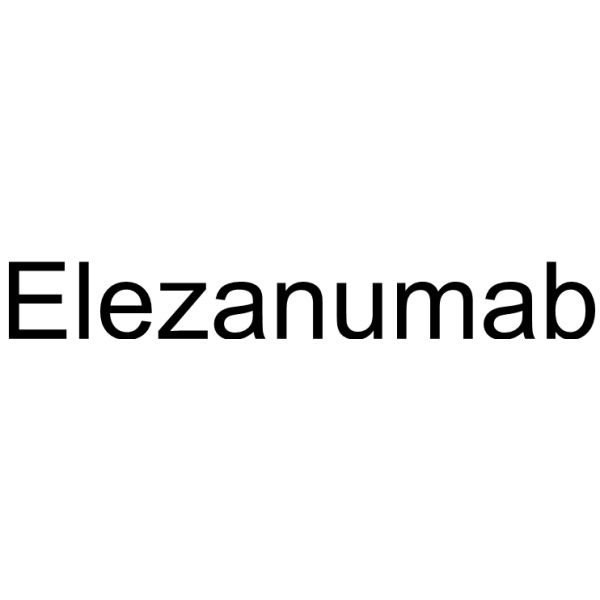| Description |
Elezanumab (ABT-555; AE12-1Y-QL) is a human monoclonal antibody that selectively targets repulsive guidance molecule A (RGMa). Elezanumab potently inhibited RGMa mediated BMP signalling via the SMAD1/5/8 pathway, with an IC50 around 97 pM. Elezanumab promotes neuroregeneration and neuroprotection in neuronal injury and demyelination models binds N-terminal RGMa, blocks BMP signaling and lacks RGMc cross-reactivity. elezanumab has neuroregenerative and neuroprotective activities without impact on iron metabolism[1][2].
|
| Related Catalog |
|
| In Vivo |
Elezanumab (ABT-555; AE12-1Y-QL; 1-10 mg/kg; 静脉给药; 每周一次; 共 5 剂) 在视神经挤压和视神经炎雌性 Lewis 大鼠模型中促进轴突再生并防止视网膜神经纤维层退化[1]。 Elezanumab (0.01, 0.1, 1, 10 mg/kg; 静脉给药; 每周一次; 共 3 剂) 在脊柱靶向实验性自身免疫性脑脊髓炎 (EAE) 雌性 Lewis 大鼠模型中促进轴突再生和髓鞘再生,减少炎症病变面积并改善功能恢复[1]。 Animal Model: Female Lewis rat optic neuritis models[1] Dosage: 1, 3, or 10 mg/kg Administration: IV; once a week for 5 doses Result: Protected against the optic nerve inflammationinduced RNFL degeneration. Showed significant protection of the RNFL, as demonstrated by decreased reduction in RNFL thickness measured by optical coherence tomography (OCT) with 10 mg/kg
|
| References |
[1]. Lili Huang, et al. Elezanumab, a clinical stage human monoclonal antibody that selectively targets repulsive guidance molecule A to promote neuroregeneration and neuroprotection in neuronal injury and demyelination models. Neurobiol Dis. 2021 Nov;159:105492. [2]. Peer B Jacobson, et al. Elezanumab, a human anti-RGMa monoclonal antibody, promotes neuroprotection, neuroplasticity, and neurorecovery following a thoracic hemicompression spinal cord injury in non-human primates. Neurobiol Dis. 2021 Jul;155:105385.
|
